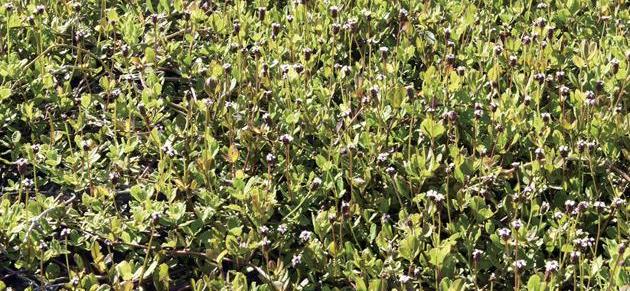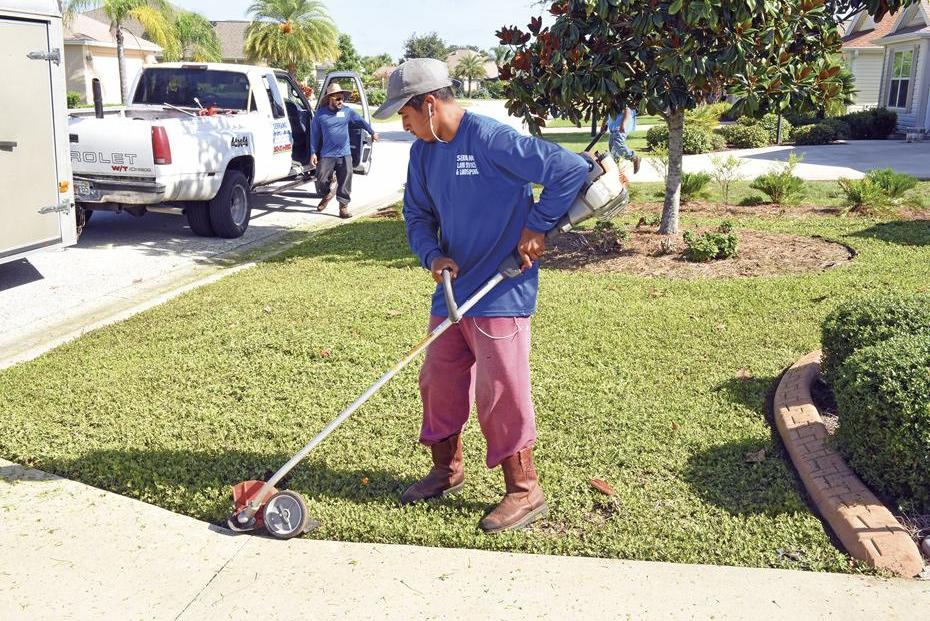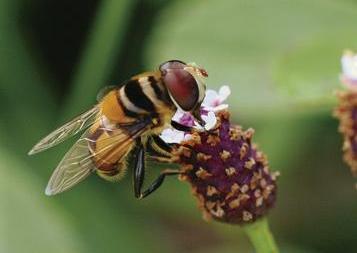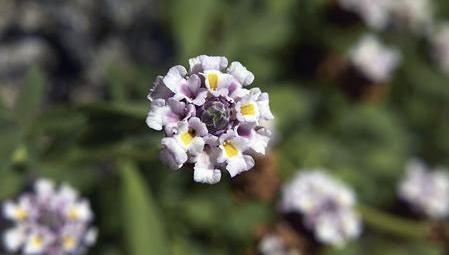
1 minute read
Make Native Plants Your New Norm
You can start by reducing lawn areas and replacing them with eco-friendly options like Turkey-tangle Fogfruit, Phyla nodiflora.
The Villages is a mostly upscale, modern development of managed golf course communities housing over 125,000 people in Sumter, Marion and Lake Counties, Florida. Common areas and private landscapes follow strictly enforced formal landscaping standards, featuring lawns and manicured shrubs, and what residents refer to as a “neat and tidy” appearance. Unfortunately, the impact of non-native plant choices and traditional landscaping practices is evident in dramatically increased water consumption, a significant threat in a region of sinkholes and springs.
Advertisement
Enter The Villages Chapter Florida Native Plant Society, which aims to make The Villages renowned for its extensive use of native plants and award-winning native plant landscapes. The chapter has partnered with the University of Florida IFAS to develop standard landscape plans and provides regular education on strategies for using native plants to reduce fertilizer, pesticide and water use. Several homeowners have swapped turfgrass for Turkey-tangle Fogfruit, Phyla nodiflora, a perennial creeping, flowering native groundcover that needs much less water than turfgrass. Monthly water bills have decreased 50% or more.
Fogfruit as a groundcover: Fogfruit, also known as Creeping Charlie, reaches a height of 3-4" in flower. A nectar plant for many pollinating insects, it is a larval host plant for the Common Buckeye, Phaon Crescent and White Peacock butterflies in Florida. It blooms summer through fall in Central and North Florida and year-round in South Florida. Needs full sun and moist soil but tolerates short periods of drought. This plant spreads, so use it as a monoculture, not mixed with other wildflowers.
Edging Fogfruit lawn area:
The owner of this Fogfruit lawn has elected edging and stringtrimming of flower stalks to maintain a flat “mowed” appearance. This practice, performed as needed but much less frequently than traditional lawnmowing, does remove the pollinator benefit of the plant.

Fogfruit can be trimmed with conventional lawn equipment if desired.

Leave the flowers for pollinators, like this native Hover Fly.
Hover fly on flower of Fogfruit, Phyla nodflora:
Hover flies, also called flower flies or syrphid flies, are important pollinators and voracious predators of aphids and other plant pests. Photo: Mary Keim
Flower:
Fogfruit flower detail. Photo: Shutterstock


